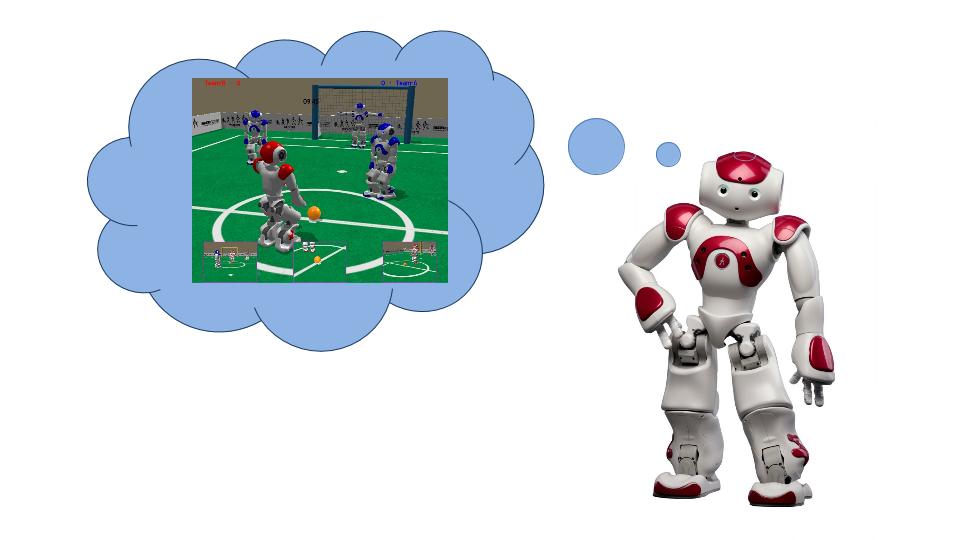
Robohub.org
Could we make a moral machine?

Robot picturing a simulation of itself and its environment and others in the environment. Photo source: Alan Winfield
Could we make a moral machine? A robot capable of choosing or moderating its actions on the basis of ethical rules?
This was how I opened my IdeasLab talk at the World Economic Forum 2016. The format of IdeasLab is 4 five minute (Pecha Kucha) talks, plus discussion and Q&A with the audience. The theme of this Nature IdeasLab was Building an Intelligent Machine, and I was fortunate to have 3 outstanding co-presenters: Vanessa Evers, Maja Pantic and Andrew Moore. You can see all four of our talks on YouTube here.
The IdeasLab variant of Pecha Kucha is pretty challenging for someone used to spending half an hour or more lecturing – 15 slides and 20 seconds per slide.
The biggest lesson – and a surprise to me – is this: robots don’t need to be sentient to be ethical. In other words we don’t need a major breakthrough in artificial intelligence to build an ethical robot.
You can watch the entire IdeasLab video ‘Making an ethical machine’ here:
And since not all of my (ever so carefully chosen) slides are visible in the recording here is the complete deck:
And the video clips in slides 11 and 12 are here:
Slide 11: Blue prevents red from reaching danger.
Slide 12: Blue faces an ethical dilemma: our indecisive robot can save them both.
Acknowledgements: I am deeply grateful to colleague Dr Dieter Vanderelst who designed and coded the experiments shown here on slides 10-12. This work is part of the EPSRC funded project Verifiable Autonomy.
tags: c-Politics-Law-Society, cx-Research-Innovation, ethical robots





